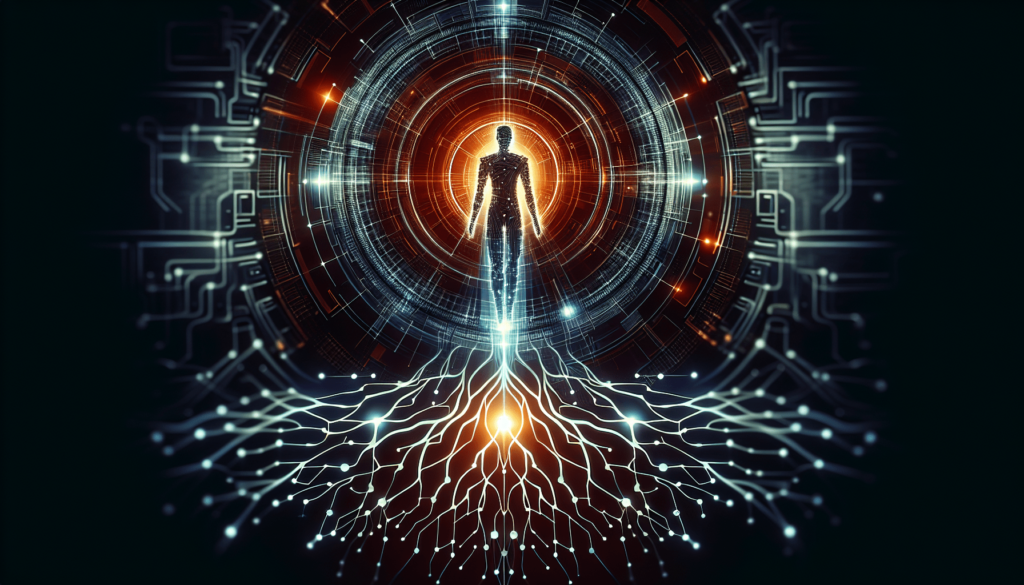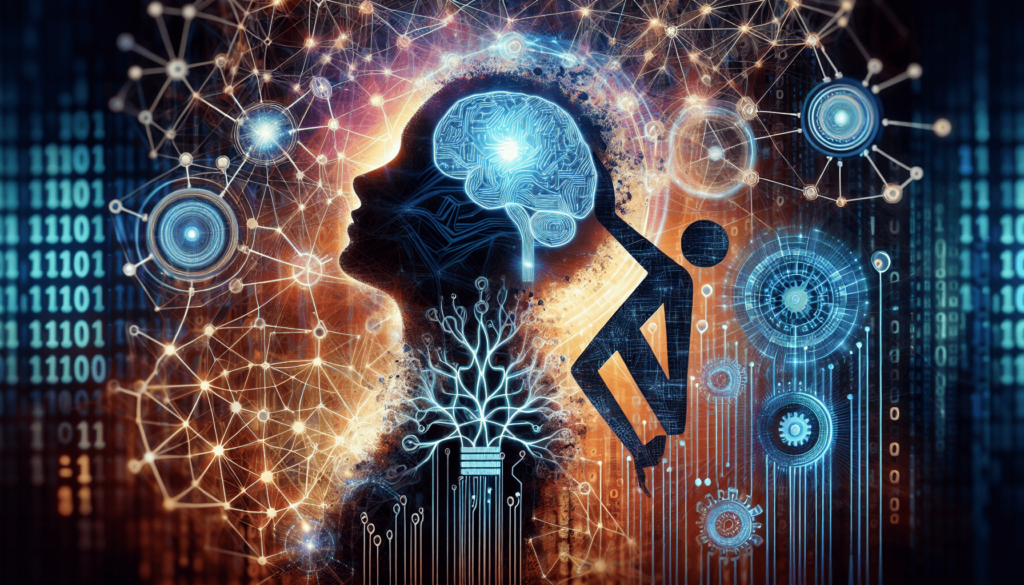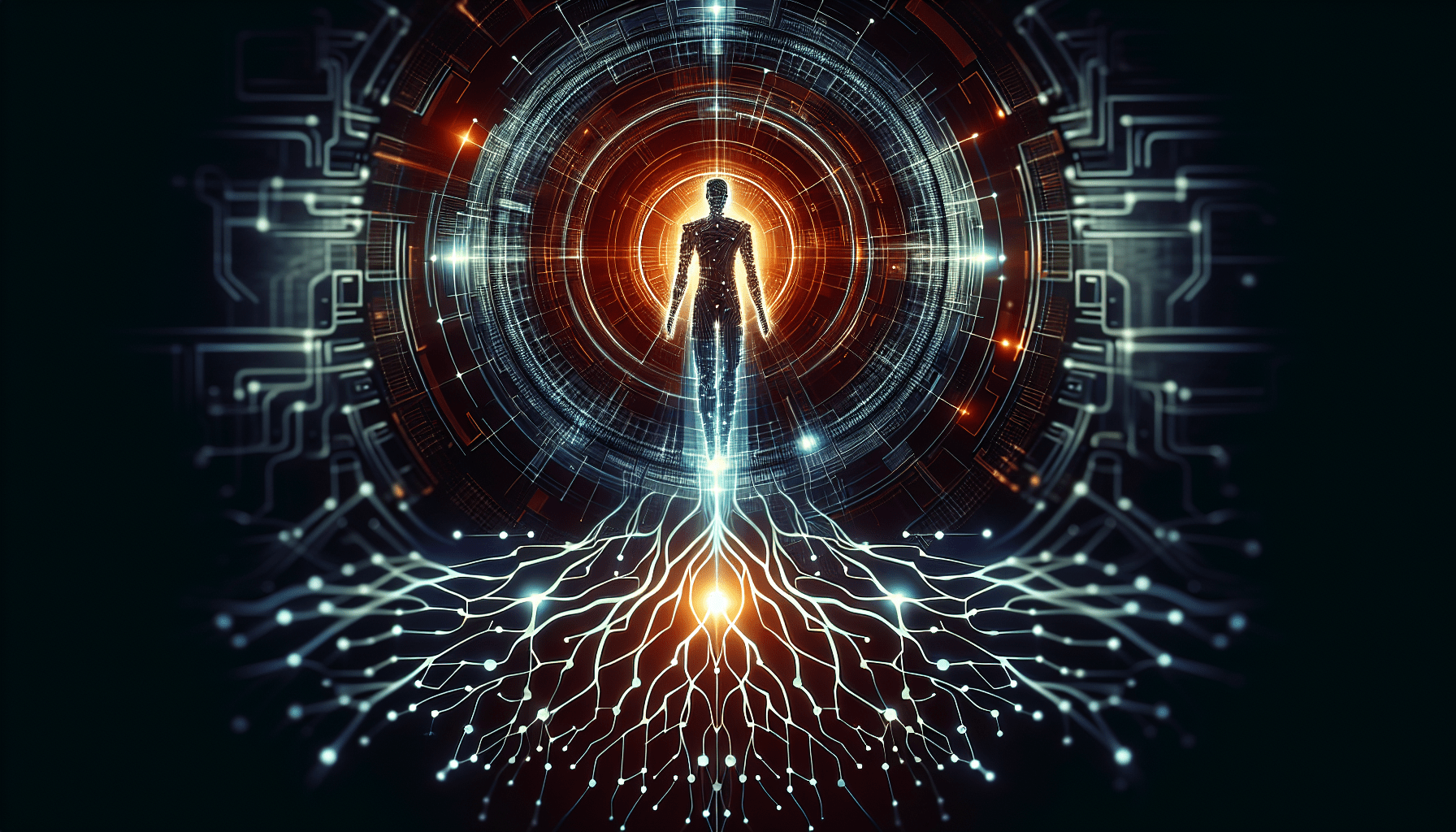Are you curious about the most compelling example of AI? Look no further! In this article, we will explore the various facets of Artificial Intelligence and identify the standout example that exemplifies its strength. From intelligent personal assistants to autonomous vehicles, AI has permeated numerous industries and revolutionized the way we live and work. Get ready to be captivated by the incredible capabilities of AI and discover which example truly shines above the rest!

Virtual Personal Assistants
Siri
Siri, developed by Apple, is one of the most well-known virtual personal assistants available today. With its integration into iPhones, iPads, Macs, and other Apple devices, Siri has become a constant companion for many users. Whether you need to send a text message, set an alarm, make a phone call, or get directions, Siri is there to help. It uses Natural Language Processing (NLP) to understand and respond to voice commands, making it easy and intuitive to communicate with your device. Siri continues to evolve and improve, providing personalized recommendations and learning from user interactions.
Alexa
Alexa, created by Amazon, has taken the world by storm with its Amazon Echo devices and smart home integration. This virtual personal assistant allows you to control various smart home devices, play music, check the weather, order products from Amazon, and much more, all through voice commands. With its vast library of skills, Alexa can provide you with recipes, news updates, and even play interactive games. Alexa’s ability to understand context and provide accurate responses has made it a valuable addition to many households, making tasks easier and more convenient.
Google Assistant
Google Assistant, developed by Google, is another powerful virtual personal assistant that is available on various devices, including smartphones, tablets, smart speakers, and smart displays. With its advanced AI capabilities, Google Assistant can answer questions, set reminders, send emails, play music, and control compatible smart devices. It can also provide personalized recommendations based on your preferences and previous interactions. Google Assistant’s integration with Google’s ecosystem enables it to access a vast amount of information, making it a reliable and knowledgeable assistant.
Autonomous Vehicles
Tesla Autopilot
Tesla Autopilot is a prime example of AI in autonomous vehicles. This self-driving technology developed by Tesla allows their vehicles to navigate, accelerate, and brake automatically on highways and certain roads. Using an array of cameras, sensors, and advanced algorithms, Tesla Autopilot can detect and respond to traffic, pedestrians, and obstacles, ensuring a safer driving experience. While it is important for the driver to remain attentive and ready to take control, Tesla Autopilot has made significant advancements in autonomous driving, leading the way in revolutionizing transportation.
Waymo self-driving cars
Waymo, a subsidiary of Alphabet Inc. (Google’s parent company), is at the forefront of self-driving car technology. Waymo has been extensively testing and refining its autonomous driving system, focusing on safety and reliability. Their vehicles use sensor arrays, including lidar, radar, and cameras, to perceive the surrounding environment and make informed decisions on the road. Waymo’s self-driving cars have completed millions of miles of real-world driving and are paving the way for a future where transportation is safer and more efficient.
Uber self-driving trucks
Uber, known for its ride-hailing service, has also ventured into the realm of autonomous vehicles with self-driving trucks. Uber’s self-driving trucks leverage AI and advanced sensor technology to navigate highways and deliver goods efficiently. These trucks can autonomously control acceleration, braking, and steering, while an on-board human operator ensures safety and takes over when needed. Uber’s self-driving trucks aim to increase the productivity and safety of long-haul trucking, reducing the strain on drivers and enabling goods to be transported more efficiently.
Natural Language Processing
IBM Watson
IBM Watson, a pioneer in AI and natural language processing, has made significant contributions to this field. Watson can analyze and understand human language, including text and speech, and provide meaningful responses and insights. It has been used in various domains, including healthcare, finance, and customer service. Watson’s ability to process and interpret vast amounts of data has proven invaluable in industries where quick and accurate decision-making is crucial. By harnessing the power of NLP, IBM Watson has revolutionized the way we interact with computers and enabled machines to understand and respond to human language effectively.
Google Duplex
Google Duplex is an AI-powered technology that takes natural language processing to the next level. Duplex is designed to make phone calls on behalf of users and have natural conversations with humans. It can handle tasks such as making restaurant reservations, scheduling appointments, and even asking for business hours. The remarkable aspect of Google Duplex is its ability to convey human-like conversational nuances, using pauses, fillers, and responses that mimic human speech patterns. Google Duplex showcases the potential of NLP and its ability to bridge the gap between humans and machines.
Image Recognition
Google Photos
Google Photos incorporates image recognition technology to organize and categorize your photos automatically. Through AI algorithms, Google Photos can identify people, objects, and locations within your photos, making it easier to search and find specific images. It can also group similar photos together, create collages, and even suggest which photos to share with your friends and family. The image recognition capabilities of Google Photos have revolutionized the way we manage and interact with our photo collections, saving us time and effort in organizing our visual memories.
Amazon Rekognition
Amazon Rekognition is a powerful image and video analysis service provided by Amazon Web Services. By using deep learning-based models, Rekognition can detect objects, faces, text, and even emotions within images and videos. This allows developers to incorporate advanced image recognition capabilities into their applications. It has proven to be valuable in a variety of use cases, such as augmented reality, surveillance, and content moderation. With Amazon Rekognition, users can harness the power of AI to analyze visual content and extract meaningful insights.

Robotics
Boston Dynamics’ Spot
Boston Dynamics’ Spot is a robotic quadruped that combines advanced robotics and AI to achieve remarkable mobility and agility. Spot can navigate difficult terrains, climb stairs, and even recover from slips and falls, showcasing its robust control algorithms. Its advanced sensing capabilities enable it to perceive and interact with the environment, making it adaptable for various applications, including inspections, research, and search and rescue missions. Spot’s AI-powered autonomy and versatility make it an impressive example of how robotics and AI can work together to accomplish complex tasks.
SoftBank’s Pepper
SoftBank’s Pepper is a humanoid robot designed to engage and interact with humans in various settings. Equipped with AI capabilities, Pepper can understand emotions, recognize faces, and respond to voice commands. This makes it an ideal companion in customer service, education, and entertainment industries. Pepper’s ability to adapt its behavior based on user interactions allows it to provide personalized experiences and build meaningful relationships with individuals. With its friendly demeanor and advanced AI-powered features, Pepper represents the potential for robots to become integrated into our daily lives.
Medical Diagnosis
IBM Watson for Oncology
IBM Watson for Oncology serves as an AI-powered assistant for oncologists and healthcare providers. By analyzing patient data, medical research, and treatment guidelines, Watson can recommend personalized treatment plans for cancer patients. It can review medical records, identify potential drug interactions, and suggest evidence-based treatment options. Watson’s AI capabilities enable healthcare professionals to leverage vast amounts of information and insights, assisting in more accurate diagnoses and treatment decisions. IBM Watson for Oncology is a powerful tool in the fight against cancer, providing valuable support to oncologists worldwide.
Google DeepMind’s AI in healthcare
Google DeepMind’s AI technologies have been applied to various aspects of healthcare, including diagnostics and research. Their AI models have demonstrated impressive performance in detecting diseases, predicting patient outcomes, and analyzing medical images. DeepMind’s AI algorithms have been used to identify eye diseases, such as diabetic retinopathy, and to assist in diagnosing conditions like kidney disease. By harnessing the power of AI, DeepMind is paving the way for enhanced medical diagnosis, allowing healthcare professionals to make more informed decisions and improve patient outcomes.
Fraud Detection
SentinelOne’s AI-based security platform
SentinelOne’s AI-based security platform utilizes machine learning algorithms to detect and prevent cyber threats in real-time. By analyzing patterns, behaviors, and anomalies in network traffic and system data, SentinelOne can identify potential threats and malicious activities. Its AI models continuously learn from new data and adapt to evolving threats, ensuring proactive defense against cyberattacks. The ability to automatically detect and respond to suspicious activities enables organizations to protect their data and networks effectively, preventing fraud and minimizing the impact of security breaches.
Ravelin’s AI fraud detection system
Ravelin’s AI fraud detection system provides an advanced and comprehensive approach to identify and prevent fraud in online transactions. By analyzing multiple data points, such as device information, behavioral patterns, and historical data, Ravelin’s AI models can detect fraudulent activities in real-time. This allows businesses to take immediate action to prevent financial losses and protect their customers from fraudulent transactions. Ravelin’s AI fraud detection system has proven to be effective in industries such as e-commerce, where the ability to quickly detect and stop fraudulent activities is crucial.
Recommendation Systems
Netflix recommendation algorithm
Netflix is renowned for its recommendation algorithm, which suggests personalized content to its users. By analyzing user viewing patterns, ratings, and preferences, Netflix’s recommendation system can accurately predict what users might enjoy watching. It successfully combines collaborative filtering techniques with machine learning algorithms to provide tailored recommendations that keep users engaged and satisfied. Netflix’s recommendation algorithm has revolutionized the way we discover and consume content, ensuring that we always have something new and exciting to watch.
Spotify Discover Weekly
Spotify’s Discover Weekly feature is a prime example of personalized music recommendations. By analyzing users’ listening habits, Spotify’s recommendation system creates a curated playlist of songs that align with their tastes and preferences. The Discover Weekly playlist is updated every week, introducing users to new artists and genres based on their musical interests. Spotify’s recommendation system enhances the music discovery experience, making it easy to find new gems and enjoy a personalized soundtrack for any occasion.
Automated Trading
AlphaGo AI
AlphaGo AI developed by DeepMind, a subsidiary of Google, made significant headlines by defeating human champions in the complex game of Go. This achievement showcased the power of AI when applied to strategic decision-making and predictive modeling. AlphaGo AI uses deep learning algorithms to analyze patterns and make optimal moves, learning from previous games and interactions with human players. Although initially designed for gaming, the techniques and algorithms used in AlphaGo AI have paved the way for advancements in automated trading and financial decision-making.
Quantopian’s investment algorithm
Quantopian provides a platform for developing and testing investment algorithms. By utilizing AI and machine learning techniques, Quantopian’s investment algorithms can analyze vast amounts of financial data and historical trends to make informed investment decisions. These algorithms can adapt and evolve based on market conditions and performance, continuously learning and improving their strategies. Quantopian’s platform gives individuals and organizations the opportunity to leverage AI for automated trading, potentially enhancing investment strategies and outcomes.
Cybersecurity
Darktrace’s AI-powered cybersecurity platform
Darktrace’s AI-powered cybersecurity platform takes a unique approach to protecting networks and systems from cyber threats. By using AI algorithms that mimic the human immune system, Darktrace’s platform can detect and respond to abnormal activities and potential breaches in real-time. The AI models continuously learn and adapt to new threats, ensuring proactive defense against sophisticated attacks. Darktrace’s AI-powered cybersecurity platform provides organizations with the ability to defend against evolving threats and minimize the impact of cybersecurity incidents.
Cylance’s AI-based antivirus software
Cylance employs AI technology to redefine the traditional antivirus software. By using machine learning algorithms, Cylance’s software can identify and prevent both known and unknown malware and viruses. The AI models analyze file characteristics and behaviors to determine if an executable is malicious or safe. Cylance’s AI-based antivirus software provides proactive protection against emerging threats, reducing the reliance on signature-based approaches. With its ability to detect and mitigate cyber threats in real-time, Cylance’s software strengthens cybersecurity defenses and safeguards against potential breaches.
In conclusion, AI has demonstrated its power and potential in various domains, from virtual personal assistants and autonomous vehicles to medical diagnosis and cybersecurity. These examples showcase the transformative impact of AI in enhancing efficiency, accuracy, and decision-making. With continued advancements in AI technology, we can expect further breakthroughs and innovations that will shape our future and revolutionize countless industries.
